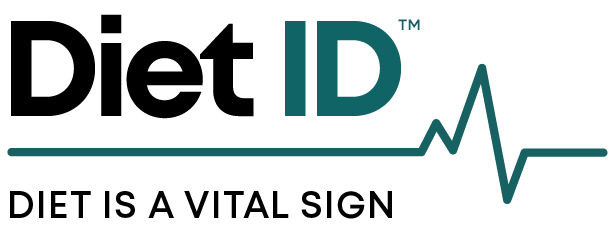A recent study showed that Diet ID is about 7 times faster than the 24-hour recall and may even correct some of the inaccuracies inherent in the traditional method.
As a health coach, healthcare provider, or researcher, you already understand the importance of nutrition in determining health status, assessing disease risk, and establishing a baseline for lifestyle-related behavior change. It’s challenging to assess your patient’s or client’s diet in a meaningful way, because to be done accurately, a lot of time and effort needs to go into tracking, logging, answering questions, and memory. To be done quickly, details can be missed, whereby the true quality of the diet is difficult to interpret.
Many of the partners we work with have traditionally used 24-hour recalls to establish baseline eating habits and assess intake. And it has several perks: it’s relatively quick (if you don’t plug the information into a nutrient analysis program), and it’s a good way to get the conversation started about eating behaviors and challenges. It also provides meal-specific details.
24-hour recalls have several drawbacks as well, one of which is the fact that it is not designed to provide data describing what is truly important: diet quality over time. A snapshot (day of intake) does not establish a dietary pattern or provide an objective measure of diet quality or health risk.
That’s why Diet ID is such a popular choice among lifestyle medicine providers, registered dietitian nutritionists, health coaches, and researchers: It provides valuable information about what really matters to optimize health.
Diet ID vs 24-hour Recall
A recent study published online in the Journal of the American College of Nutrition compared two dietary assessment tools among African-American participants (n=68) in the Nutritious Eating with Soul (NEW Soul) study (1). Given the overall burden of 24-hour recalls, the study team at the Arnold School of Public Health, University of South Carolina, aimed to compare the use of a novel image-based platform, Diet IDTM, against three 24-hour recalls via the ASA24®.
Both tools determined nutrient intake and diet quality. However, Diet ID was quicker, with participants taking an average of less than 4 minutes, while 24-hour recalls typically take up to 30 minutes. Despite energy intake and nutrient differences, the researchers also reported correlations were strongest between Diet ID and ASA24 for Healthy Eating Index (HEI) score, protein, carbohydrates, cholesterol, potassium, copper, thiamin, and vitamins B12 and E.
Interestingly, while the 24-hour recall is known to underestimate calorie intake and overestimate diet quality, this new study shows not only that Diet ID compares well to this method but concomitantly diverges from it in a way that strongly suggests that it is actually 'fixing' the method’s known errors.
The discrepancies between the two methods seen in this study suggest that Diet ID was potentially correcting those inaccuracies, although further research is required to corroborate that. Diet ID has been implemented as the primary dietary assessment in other research studies at academic institutions across the country.
1. Gabrielle Turner-McGrievy, Brent Hutto, John A. Bernhart & Mary J. Wilson (2021) Comparison of the Diet ID Platform to the Automated Self-administered 24-hour (ASA24) Dietary Assessment Tool for Assessment of Dietary Intake, Journal of the American College of Nutrition, DOI: 10.1080/07315724.2021.1887775
Want to learn more about how Diet ID can improve your workflow? Set up a demo with us!



